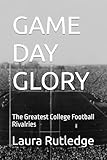David Piland, a name that resonates with college football enthusiasts, particularly those who followed the University of Houston’s football team in the early 2010s. As a college football quarterback, Piland’s journey through the NCAA was marked by impressive performances, challenges, and an unexpected early retirement. This article delves into his college football career, highlighting his achievements, struggles, and the legacy he left behind.
David Piland was born on October 18, 1990, in Southlake, Texas. He attended Southlake Carroll High School, a known powerhouse in Texas high school football. Piland’s talent was evident early on, as he led his high school team to significant victories, catching the attention of college scouts across the nation.
Transition to the University of Houston
In 2010, David Piland joined the University of Houston Cougars, stepping into the shoes of then-injured starter Case Keenum. As a freshman, Piland was thrust into the spotlight, tasked with leading the team in a highly competitive environment. His debut season was a testament to his skill and adaptability, as he threw for over 2,600 yards and 24 touchdowns, quickly establishing himself as a formidable quarterback in college football.
David Piland’s college football career was filled with memorable moments. Known for his strong arm and quick decision-making, Piland had several standout performances that endeared him to Houston fans and college football followers alike.
2011 Season: A Year of Promise
The 2011 season was particularly significant for Piland. Although Case Keenum returned as the starter, Piland played a crucial supporting role. His dedication and commitment to the team were evident in his readiness to step in whenever needed. The Cougars finished the season with a stellar record, further cementing Piland’s reputation as a reliable and talented backup.
Record-Breaking Performances
One of Piland’s most notable games came in 2012 against Louisiana Tech, where he set a school record for the most passing yards in a single game, racking up 580 yards. This performance was not only a personal achievement but also a highlight in the University of Houston’s football history.
Despite his promising career, Piland faced significant challenges, primarily related to injuries. Concussions became a recurring issue, impacting his ability to play consistently. The physical demands of the sport, coupled with these injuries, took a toll on Piland’s health and performance.
| # | Preview | Product | Price | |
|---|---|---|---|---|
| 1 |

|
College Football Shirts for Boys Players T-Shirt |
$14.99 |
Buy on Amazon |
| 2 |

|
GAME DAY GLORY: The Greatest College Football Rivalries |
$19.99 |
Buy on Amazon |
Decision to Retire
In 2013, after a series of concussions, David Piland made the difficult decision to retire from college football. His early retirement was a significant moment, highlighting the growing concern over player safety and the long-term impacts of head injuries in football. Piland’s decision underscored the importance of health over athletic achievement, a stance that resonated with many in the sports community.
David Piland’s impact on college football, particularly at the University of Houston, extends beyond his on-field performances. His career serves as a reminder of the unpredictable nature of sports and the importance of prioritizing health.
Influence on Future Players
Piland’s journey has inspired many young athletes, emphasizing the need to balance ambition with health considerations. His story is often cited in discussions about player safety, contributing to broader conversations about how collegiate sports can better protect athletes.
Continuing the Game Off the Field
Since his retirement, David Piland has remained connected to the sport, contributing in various capacities. Whether through coaching, mentorship, or advocacy, Piland continues to influence the football community, sharing his experiences and insights with the next generation of players.
David Piland’s story as a college football quarterback is one of talent, resilience, and critical life choices. His time at the University of Houston was marked by significant achievements and challenges that ultimately shaped his legacy in the sport. While his career on the field ended sooner than expected, his impact continues to be felt, reminding us all of the values of perseverance, caution, and the enduring love of the game.
David Piland’s journey through college football remains an inspiring tale for aspiring athletes and sports enthusiasts, highlighting the highs and lows of a career in competitive sports. His contributions to college football, both on and off the field, will not be forgotten, serving as a beacon of what it means to be both a player and a person who values health and well-being above all else.



















